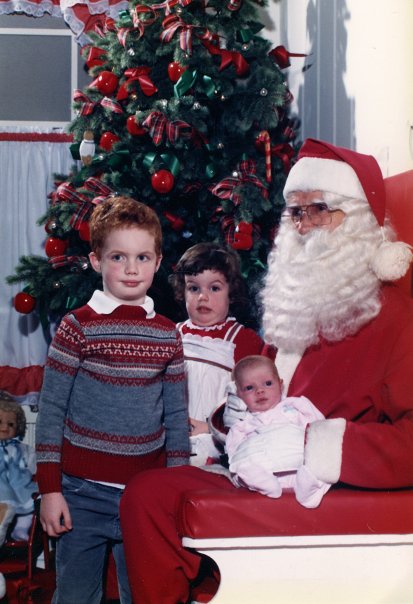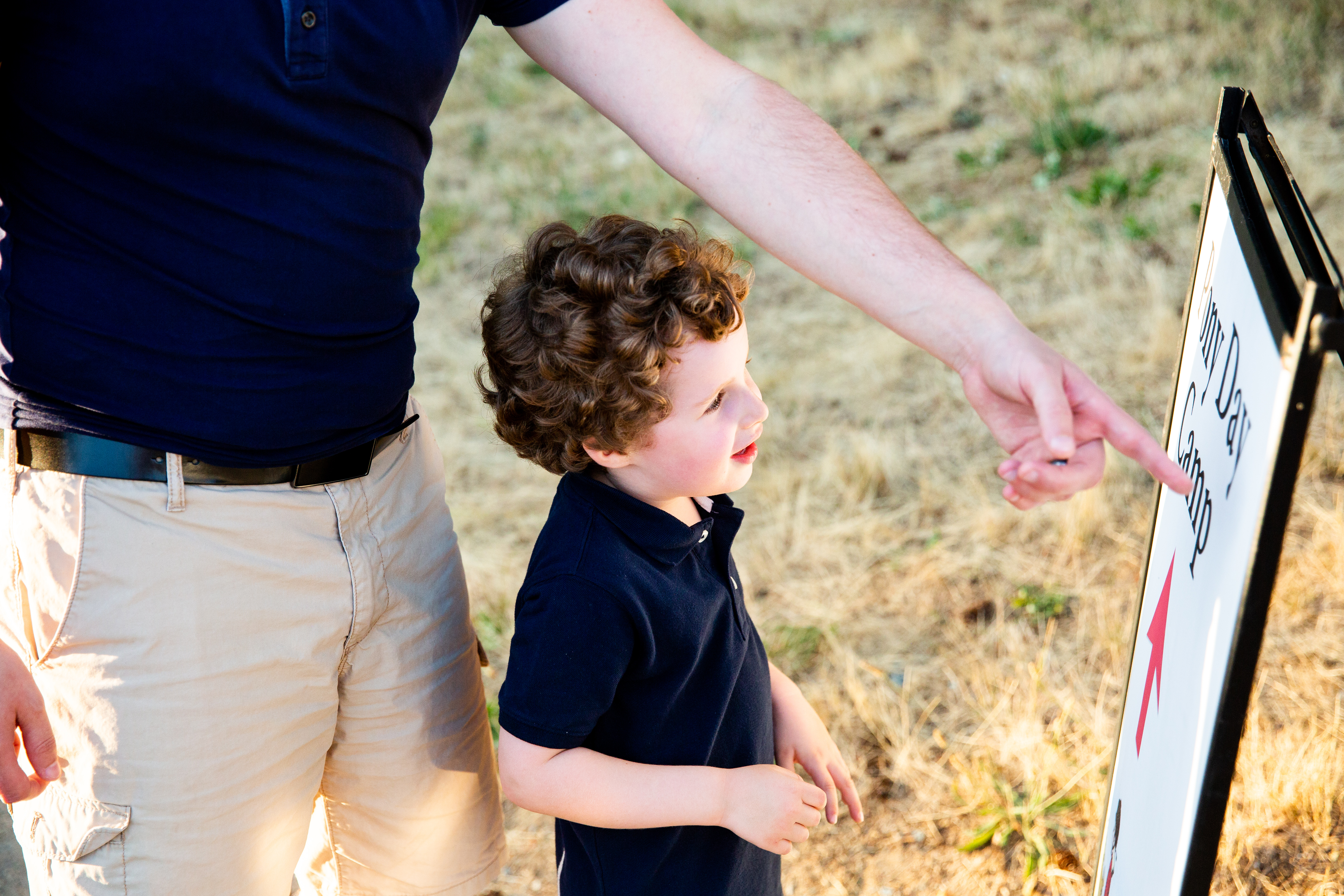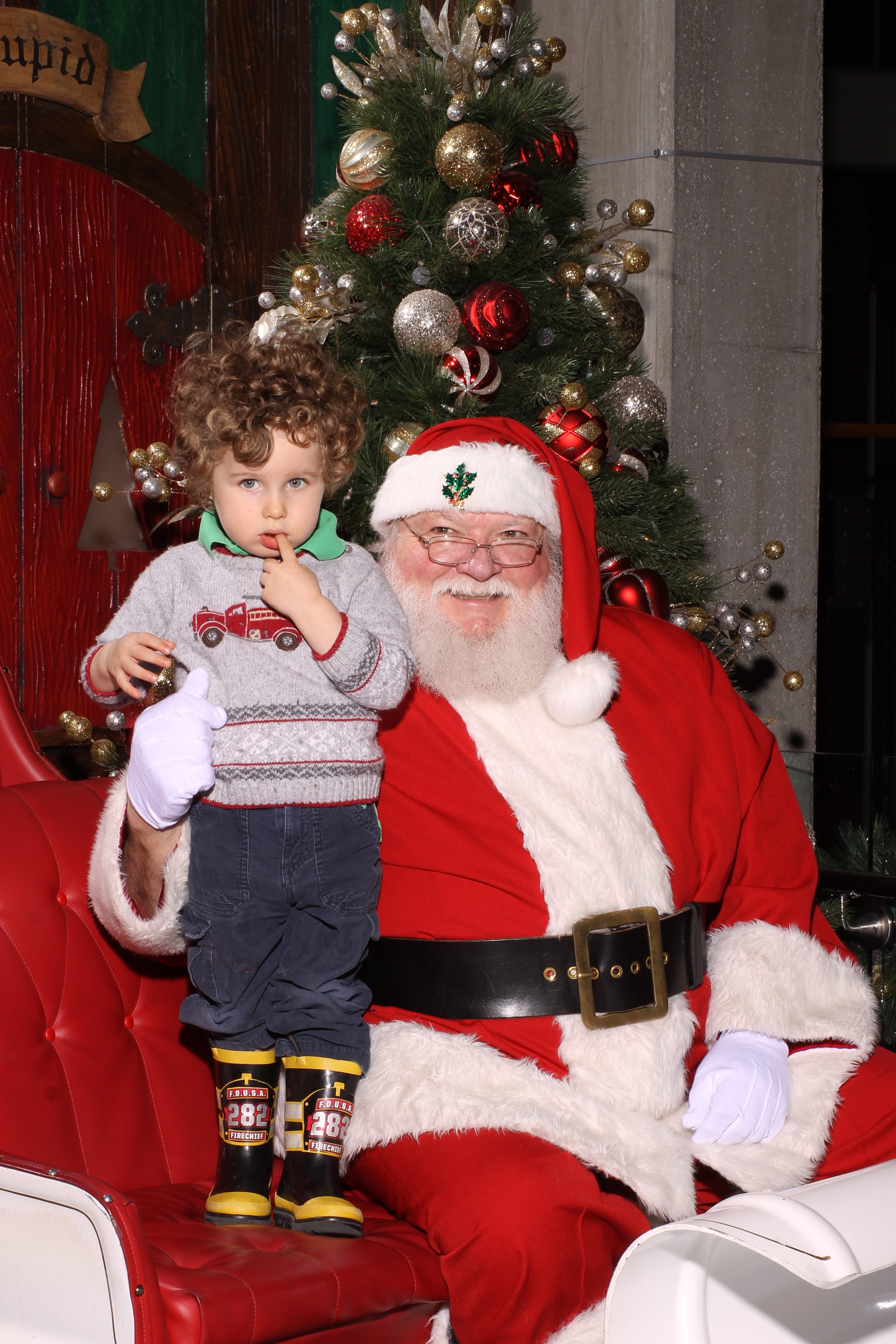How to Enjoy the Santa Story Without Lying to your Child
By presenting the “Santa Story” as fiction, you can still celebrate the fun traditions of the Christmas season while avoiding the downsides of deceiving your child.

*This post was updated on 12/11/18 to include an FAQ section and some quotes from other parents.
Every December, a few articles circulate with titles like, “How to Tell Your Kids the Truth About Santa Without Breaking Their Hearts.” They encourage parents to tell children they get to “become Santa” and thus “the Santa construct is not a lie that gets discovered, but an unfolding series of good deeds and Christmas spirit” (quote attributed to an anonymous Facebook post, which has been widely shared).
While I typically like to have my cake and eat it too, in the case of Santa I am dissatisfied with this approach because it doesn’t address the multi-year deceit involved when the Santa tale is presented as a series of facts, along with supporting “evidence” of Santa in the form of presents under the tree. While encouraging your child to see themselves as “becoming Santa” in an abstract sense holds a certain appeal to me as an adult, I don’t see it as particularly age appropriate for children who often seek concrete, specific answers to their concrete questions.
I suspect some other parents have struggled as I have and are looking for a different approach. Thus, today I will outline why and how to still participate in aspects of the Santa story and giving season, without potentially sacrificing your child’s spirit of inquiry and trust in you.
Why not tell a child that Santa is a “real” being when they are young, then reveal the truth later?
1) My child takes things literally.
During the holiday season the tradition in the US is for adults to present a series of “facts” around Santa including including: Santa’s a specific person who lives at the North Pole, he brings presents to children around the world on the evening of 12/24 while flying around in a sleigh pulled by reindeer, and more.
Parents often emphasize the importance of the “spirit of giving” during the holiday season. However, my observation after years of working with children (and having my own) is that in the early years, they typically take the story literally, particularly given that they receive physical evidence of Santa’s existence in the form of gifts. This the the crux of the reason I am not comfortable using the abstract explanation that “Santa is actually the giving spirit in all of us,” or “When you’re an adult, YOU become Santa,” because on a literal level those explanations are untrue. The abstract explanations invalidate the series of facts that have been presented to the child over many months/years.
2) Presenting the tale as a fact only to later reveal it’s fiction is lying, which can threaten my child’s trust in me.

Of all things, a scene from Office Space comes to mind when discussing Santa (see a transcript of the scene in the picture on th eleft). In Office Space, Peter has engaged in a scheme to divest extremely small amounts of his company’s money into a personal fund.
He attempts to explain to his girlfriend how it’s “not stealing.” She, however, is not convinced, because she’s right: at the heart of the matter, it is stealing.
Regarding the Santa tale, if presented initially as factual to children and then explained later in an alternate manner (such as “Santa is the spirit of giving”), no matter how hard we adults try to spin it, at the heart of the matter, the child has been lied to.
The lie is the series of literal “facts” that have been presented to the child over the years, facts which the child will likely have specifically questioned (e.g. “How can Santa get to EVERY house in the world in one night?”).
It should hopefully be self evident that revealing that the parent has engaged in an elaborate, multi-year lie can threaten the child’s trust in their parent and their relationship as a whole.
3) My child deserves honest answers to his questions.

At the end of the day, I have the sacred duty of helping the world make sense to my child, and that includes answering his questions as honestly as I can. I respect his spirit of inquiry and I want him to grow up with analytical skills, including the drive to seek data prior to coming to conclusions.
Preschool-aged children in particular have a fascinating combination of the belief that anything is possible, yet they simultaneously want clear explanations for how and why the world is how it is. The way I see it, in the eyes of a 4 or 5 year old, “Anything is possible, but I need to understand how.” I don’t want to present the Santa story as fact because it would add inaccuracies to his foundation of understanding the world at an early age.
Now, one of the counter-arguments to raising your child without a blind faith in Santa is that children deserve to experience “magic,” and to that I say: YES, there is value and power of fiction and things that feel like magic! It’s just undeniable to me that there is enough magic in my child’s world already. For example, we can video chat with daddy when he’s working in China – that genuinely still feels magical to me! I don’t see a need to create more artificial magic, particularly in a specific way that could undermine his trust in me.
How to present the Santa Story and participate in fun holiday traditions without lying to your child
Fortunately, the how is actually a lot easier than the why. This is how my spouse and I have handled the Santa situation over the last four years with our son.
1) Talk about the “Santa story.”

Framing it as simply a story from the very beginning has been crucial for me. It allows us to still enjoy some of the family holiday traditions (like hanging up the stockings), without potentially sacrificing his trust.
I explained that Santa is like a superhero: people like to dress up like him and share stories about his magic powers.
I say that Mommy and Daddy fill his stocking and give him one big gift “from Santa” but we’re just pretending it’s from Santa and it’s really from us.
2) For Santa pictures: refer to the “man dressed as Santa.”
One of my favorite holiday traditions has been going to the mall Santa kiosk and getting official Santa photos taken. When presenting this adventure to my child, I simply told him we’re going to the mall to see “a man dressed as Santa.”
As a child, this was one of the things that confused me the most about the Santa story. How is it that the world is so big, but the real Santa just HAPPENED to be at the mall near my house? How did he even have time to come to our mall when he had millions of presents to get ready? At any rate, explaining that it’s a man dressed as Santa avoids that element of confusion on the part of the child.
3) Encourage your child to make up their own mind.

When I first shared this post, I received a beautiful comment from a friend and fellow Occupational Therapist, Rebecca Berg. She said, “I’ve always taken the stance that I want my boys to embrace wonder AND skepticism. I want them to be scientists who see the world as it is, but also artists, who can see the world as it could be. To trust themselves and see possibilities. With that in mind, I have shared their interest in Santa without furthering the agenda, and answered their questions with respect for their own judgment… ‘My science brain knows that Santa can’t be real because (reasons) but my imagination wants him to be real because he brings lots of happiness to kids.’ And then, I ask them to decide for themselves and share their reasons.”
On the one hand, I am honored that my child sees me as a source of wisdom and I take his trust seriously. On the other hand, I want to empower him to make his own conclusions as he grows, and to understand that different people have different beliefs.
For these reasons, as well as to honor the fact that he’ll be in social environments with other children who’ve been told other things, I say things to him like: “Some families believe that it’s not a story, and that Santa is a real person. Mommy and Daddy don’t believe that. You can make up your own mind and believe what you think is right.”
This has led to some pretty interesting conversations. At one point he triumphantly said, “I think Santa is REAL, Mama!” and I simply said, “That’s interesting!” while deep down I thought, “Will I be the first parent whose child goes to therapy due to their parent being overly honest with them?” I had to chuckle at that thought. I’m OK with that risk, because I would rather err on the side of honesty than deceit in my most important relationships.
Conclusion:
I want to be clear that I am presenting this as a personal story and my personal philosophy, but I not interested in shaming others who think or feel differently.
As a parent and someone who works in child development, I am very against the “mommy wars” culture in which parents call out other parents for making the “wrong choices” (formula feeding, co sleeping, screen time, etc). I try to err on the side of a happy medium in most of my own parenting choices; I let Charlie have screen time and sweet treats in moderation, and he mostly drank formula in the first year of life, for example.
I am presenting my perspective simply in hopes that it will help others who are struggling with the same questions around truth telling and Santa that I did. As my favorite podcast host Judge John Hodgman says, “People like what they like.” If another family wants to treat the Santa situation differently, I have no problem with that whatsoever. With all that said: please let me know any additional thoughts, ideas or feedback in the comments section if you feel so compelled!
Frequently Asked Questions about this approach
1.How do you handle your child interacting with children who DO believe, and not ending up being the parent of the kid who ruins Christmas?!
My first answer is that this is a risk I’m willing to take. As a long time people pleaser and “nice person,” having a child has actually been a good exercise for me in practicing being willing to let others down in order to practice what I think is right. In this case, I believe the onus should be on the parent who is participating in this deceit to bear the burden of the downfall. The default assumption should be that we don’t lie to children, and any derivation from that will come with it’s own risks and rewards.
I also think it could help to emphasize that different families believe different things from the beginning. That way, the child who believes might end up being told by my child that, “My family doesn’t believe Santa is real” rather than “SANTA IS NOT REAL!” Although, that does kind of lead to the next question…
2. Isn’t encouraging kids to decide for themselves, and saying “our family doesn’t believe, but some families do”, still a little like lying?Like, we KNOW Santa isn’t real, right? Not just that we don’t believe it.
Religion might be a good analogy here; you might in one classroom have people who fervently believe many different truths, truths that rest upon either evidence and/or faith, from their family’s religious traditions. Like, I would say that it’s not “real” that Jesus is the son of God, but for some children/families, that is an absolute truth. So, even though in the Santa case it obviously isn’t real, kids do need to get used to the idea that other people hold beliefs different than theirs.
3. What about if you and your spouse/parenting partner feel differently?
I got this from quite a few people, who wanted to know how to convince their parenting partner to take this approach. I think a lot will depend on your specific situation, but for me, as with a lot of parenting decisions, it comes down to “risk versus reward.” I think that the risk of outright lying to my child outweighs the reward in this case, particularly because there’s an option of still enjoying the “Santa Story” without deceiving your child! However, as with all parenting decisions, it really has to come down to whatever the primary parents are comfortable with.
4. What about sharing the story of the “real Santa” (Saint Nicholas)?
I think that’s a great idea, a few of my friends posted links to this site which has the original story.
5 Comments
Leslie
How would you suggest our family could change course on this? My 6 year old and 4 year old have gotten Santa gifts for several years now. I dont feel right about keeping the lie alive, but I’m at a loss for how to walk this one back gently.
Cheryl Crow
Hi Leslie,
What a great question. I think the sooner the better, for sure! I think a lot will depend on the specific details of what they’ve been told already about Santa and what questions they’ve asked. I think for the 6 year-old the analogy of super heroes or princesses could work well. You could start the conversation by saying how people like to dress up and pretend they are Elsa, or Captain America, Batman, etc. and how we like to read stories and watch movies about these superheroes. You could simply pose the question out of curiosity, “Did you know that Santa is like a superhero too? People like to dress up like him and tell stories about him flying around the world to delivery presents and bring joy to people. Some people think that Santa is one magical person, but other people think there is no *one* santa, there are lots of people who like to have fun PRETENDING to be Santa.” And then see what they say…if they ask what you believe, you can say you believe there is no one person that is Santa but that your family likes to have fun with Santa traditions and pretend presents are from him, or something like that…let me know if that makes sense! But still you can leave room for them to make up their own minds. They might flip flop a bit and watch for your reactions. A lot really will depend on the personality of the child! I wish you the best and would love to hear how it goes!
Katrina Zlatkovsky
Thank you so much for sharing! This really helps put my mind at ease for how to approach this with our daughter (I first started pondering the dilemma with my 2-month-old last Christmas, and again just recently with the concept of the Easter bunny.) I have such fond memories of Christmas-time traditions, but my instincts simply can’t handle the idea of actually “lying” to her (with not just the idea of Santa, but tons of fake details, like setting out cookies that disappear, creating reindeer hoofprints, etc.). However, since I firmly believe in the “truth” and power of fiction and the imagination, your approach makes so much more sense to me, and really helps me see how easy it could be to partake in Christmas traditions, while still respecting honesty. Many thanks for taking the time to share!
Cheryl Crow
Hi Katrina,
I’m so so glad to hear it was helpful for you! I spent a long time thinking about it, and I’m really happy with what i came up with. My son is 6 years old now and he still loves celebrating “the man dressed as santa” and when mom and dad pretend to be the easter bunny. It’s the best of both worlds!
Rick Phillips
My oldest son and his ex-wife were careful to do it much as you described. To me it is much more humane and reasonable way to deal with this and I wish we had taken this approach.